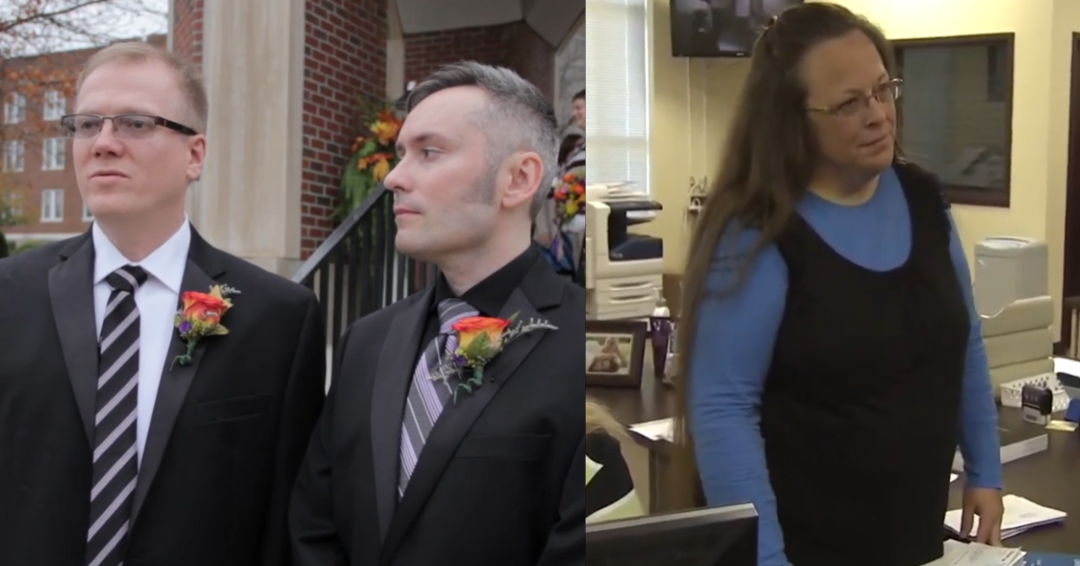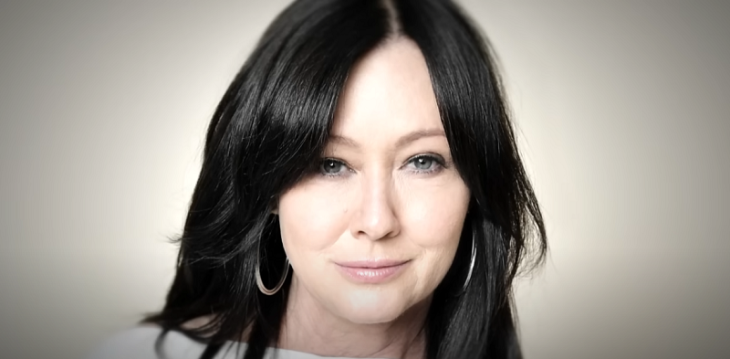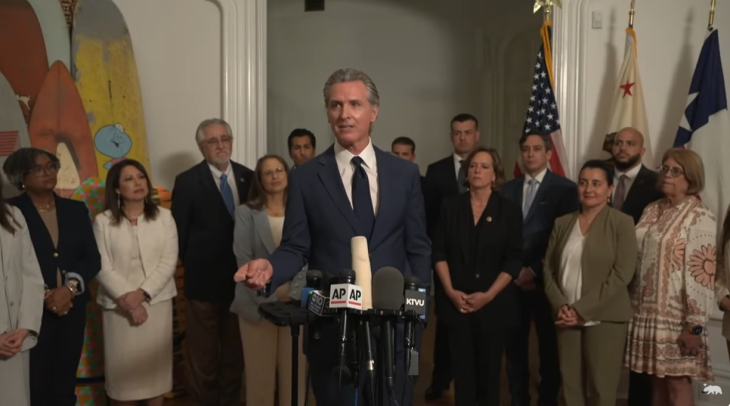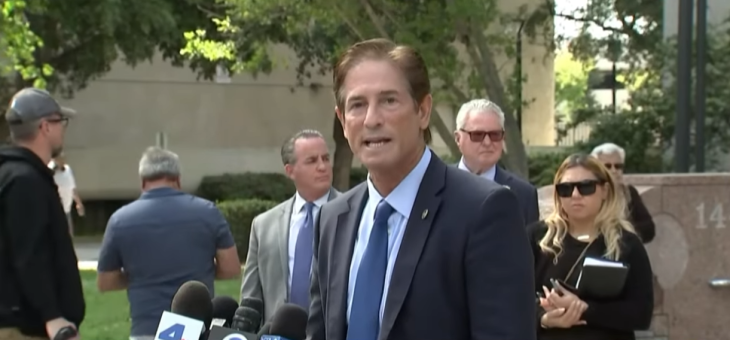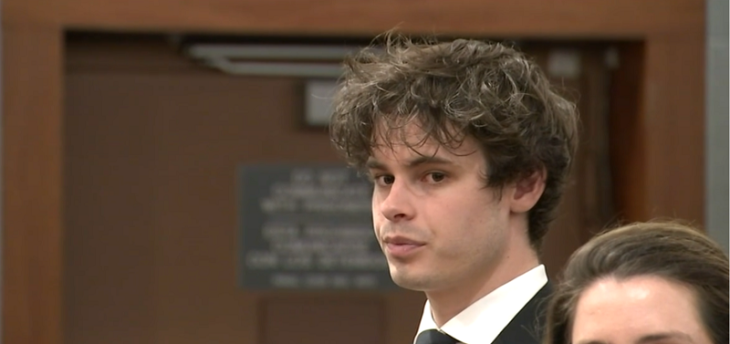Former Kentucky County Clerk Asks the Justices to Scrap Nationwide Marriage Rights
It’s been ten years, and former Kentucky county clerk Kim Davis has formally asked the Supreme Court to dismantle federal protections for same-sex marriages and, as predicted, overturn the landmark Obergefell v. Hodges ruling.
Davis, jailed for six days in 2015 after refusing to issue marriage licenses to David Ermold and David Moore and other couples, is appealing a jury’s order that she pay $100,000 in emotional damages plus $260,000 in attorneys’ fees. She later lost her bid for reelection as Rowan County Clerk.
In a petition filed last month, she claims the First Amendment’s free exercise of religion protects her from personal liability and argues the court’s 2015 decision in Obergefell v. Hodges was “egregiously wrong.”
Her case, widely considered a long shot, is seen as one of the few with legal standing to challenge the precedent. It comes as conservative lawmakers and advocacy groups push to outlaw gay marriage in much the same way that they took down Roe v. Wade.
According to Lambda Legal, nine states this year have introduced bills or passed resolutions aimed at restricting new marriage licenses for LGBTQ couples or urging the Supreme Court to reverse Obergefell.
On Thursday, Davis’ attorney, Liberty Counsel founder Mat Staver, argued before the 6th U.S. Circuit Court of Appeals, framing the appeal as a potential pathway to the Supreme Court. Ermold and Moore’s attorney, William Powell, said he’s “confident the Supreme Court will likewise agree that Davis’s arguments do not merit further attention.”
The Supreme Court previously denied her appeal in 2020.
Staver told the Kentucky Lantern that his goal is to require the judges to reconsider Obergefell on the same legal reasoning the court used in 2022 to overturn Roe v. Wade. That decision ended the federal right to abortion and returned regulation of the procedure to individual states. He states that he believes it is a matter of when, not if, Obergefell will be reversed.
The 6th Circuit Court dismissed her previous motion, saying in their ruling, “Although Davis’s assertions are novel, they fail under basic constitutional principles. Under § 1983, Davis is being held liable for state action, which the First Amendment does not protect—so the Free Exercise Clause cannot shield her from liability,” as quoted by Newsweek.
Public support for marriage equality remains high at 70%, according to Gallup, though Republican support has dropped from 55% in 2021 to 41% in 2025. The share of Americans in favor has plateaued since 2020 after climbing from 60% in 2015.
The Supreme Court is expected to decide this fall whether to take up Davis’ case, if four of the justices agree to hear her petition. If granted, arguments would likely be scheduled for spring 2026, with a ruling by June of that year. The justices could also decline to hear the case, leaving lower court decisions against Davis in place.
Even if Obergefell were overturned, existing marriages would remain valid under the 2022 Respect for Marriage Act, which requires all states and the federal government to recognize same-sex and interracial marriages performed anywhere in the country.

